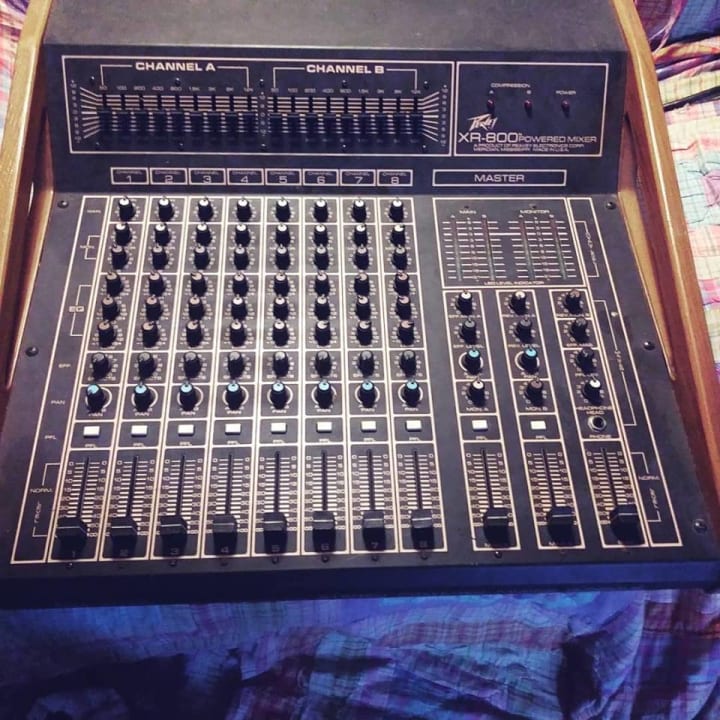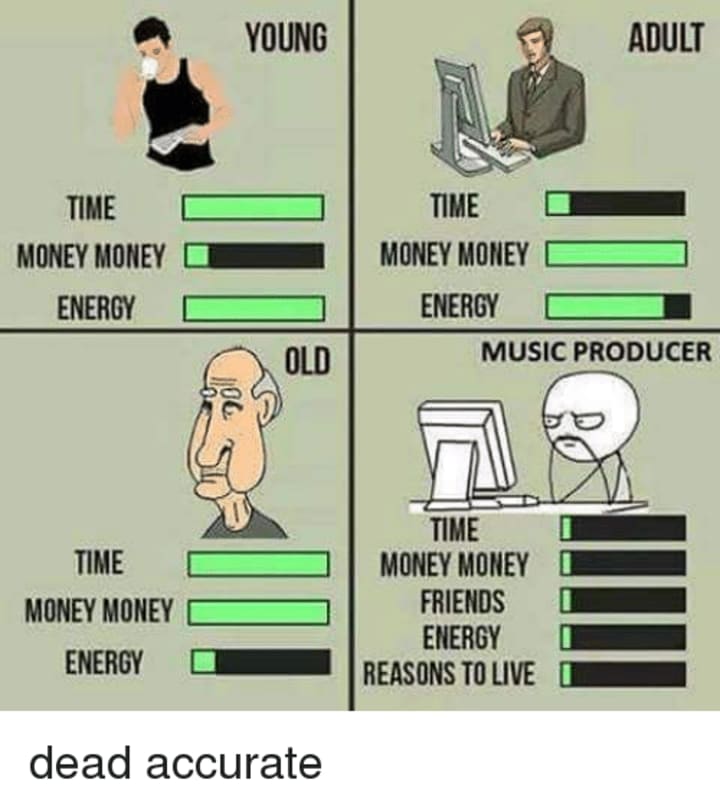
Music production is one of those jobs where you mix pleasure with actual work. You won’t find a producer who’s been at it for some years that isn’t a “music nerd,” so to speak. Still, the pleasure part must be carefully “mixed” (pun intended) with the work part, if success is to be attained. There are multiple sides to actually being a successful music producer, and this article will detail what you can do to increase your odds of making it in this pleasurable activity.
1. Define What Kind of Producer You Want to Be

There are multiple questions that you should ask yourself so that you can get a clear picture of who you are, what you want to become and what is it that you want to communicate through your music:
- What genres do you want to approach?
- How much do you actually know about the technical and theoretical side of music production and music in general?
- Do you have an audience for your productions?
- Are you bringing anything new or can your personal imprint be noticed?
- Do you intend on making a living out of music production?
- How do you plan on marketing yourself?
Know what it takes to make it.
One of the questions that I’ve mentioned above is whether or not you want to make a living out of music production. If you do, then you’ll have to treat music production as more than just a pleasurable creative activity. It’s a full-time business in a highly competitive environment. Think of it like this. Nowadays, anyone with a laptop can start producing music. There are so many amateurs who do, that treating it like a hobby will make it very difficult for you to even reach the level of “part-time job”.
To put it simply. If you want to excel as a music producer, you have to:
1. Master the technical side
2. Feed your creative side
3. Know how to market yourself
4. Doing all three is not by any means easy. It’s a full-time gig.
2. Assess Your Current Level

The best way to assess your production skills is to listen to a professionally-produced track on a couple of sound systems (studio monitors, headphones, car soundsystem, etc.) and immediately playing one of your best tracks on the same systems. For those who don’t already know, the track that you’re comparing your own is known as a “reference track,” and must be similar to your own in terms of genre and overall sound.
If every sound is how it should be both tonally and spatially, then you can safely assume... nothing.
Seek out feedback from people who can give you a qualified opinion. You can never be too sure of yourself when it comes to the delicate art and science of mixing and mastering.
3. Constantly Look for Inspiration

The technical aspect of making music is indeed important, but the creative part is what sets the beautiful souls apart from the geeky engineers. To cultivate your creative side, you must listen to as much music as possible. Listen to the subtleties of each sound and try to see “what makes it tick.”
Although it’s advisable that you be a total geek when it comes to your own genre, you should also focus on other genres, whether they are a good mix with your initial one or not. This way, you can incorporate parts from one genre and adapt them to your main one. This allows you to experiment with different blends and brings you one step closer to defining your own sound.
4. Promote Yourself and Build Relationships

Regardless if music production is a hobby or a full-time gig, you want your mixes to be heard. You’ll have to understand how to effectively market your music, according to the genre and style that you’re producing. Mainstream music is marketed differently than underground music. Also, you’ll want to assess whether or not you’ll have your own label or not. Personally, I’m a DIY kind of guy because the underground genre that I’m producing basically dictates that you market yourself. People in other genres, especially mainstream ones, may have a different opinion, which may work better in their case.
5. Organize Your Time

Each part of production must be tended to. You don’t want to stay in one place by constantly starting songs without finishing them properly. Also, you don’t want your songs to sound the same, so you’ll need to be constantly learning new things, looking for new samples, and so on.
Some days can be quite lazy, especially if I’ve been working intensely the day before. I’m a regular coffee drinker, but sometimes I find that something extra makes the difference between a highly productive day, and one in which I feel that I could have done more. I find that taking Modafinil (Modalert) does help me quite a lot when it comes to getting “in the zone,” finishing tracks, and basically getting started on any type of work.
6. Take Regular Breaks

Sometimes, inspiration is nowhere to be found, and some tracks may sound off. You don’t know exactly the reason why things don’t seem to make sense, yet you’re still blocked in self-doubt. Such moments are quite normal, and sometimes all you need is a walk in the park, a chat with a friend, or even something as small as going to the shop to buy some cigarettes. On top of that, spending too much time seated without getting up is bad for your body. Remember to take breaks once in a while. Your body and your tracks will thank you!
About the Creator
Sarah A
Mystifying the mind one article at a time :-)






Comments
There are no comments for this story
Be the first to respond and start the conversation.